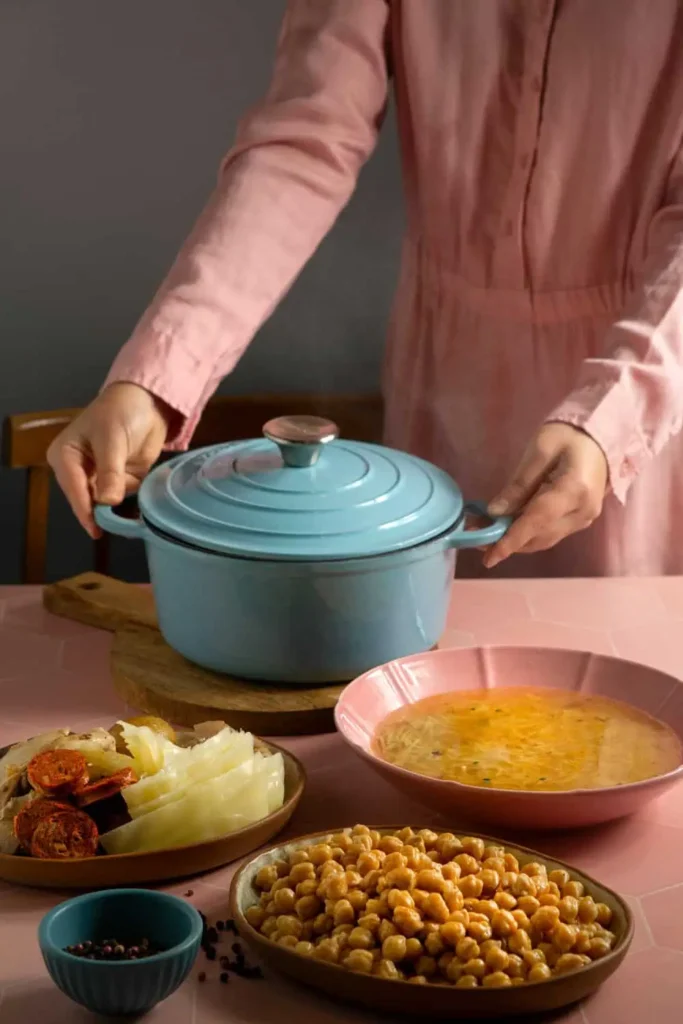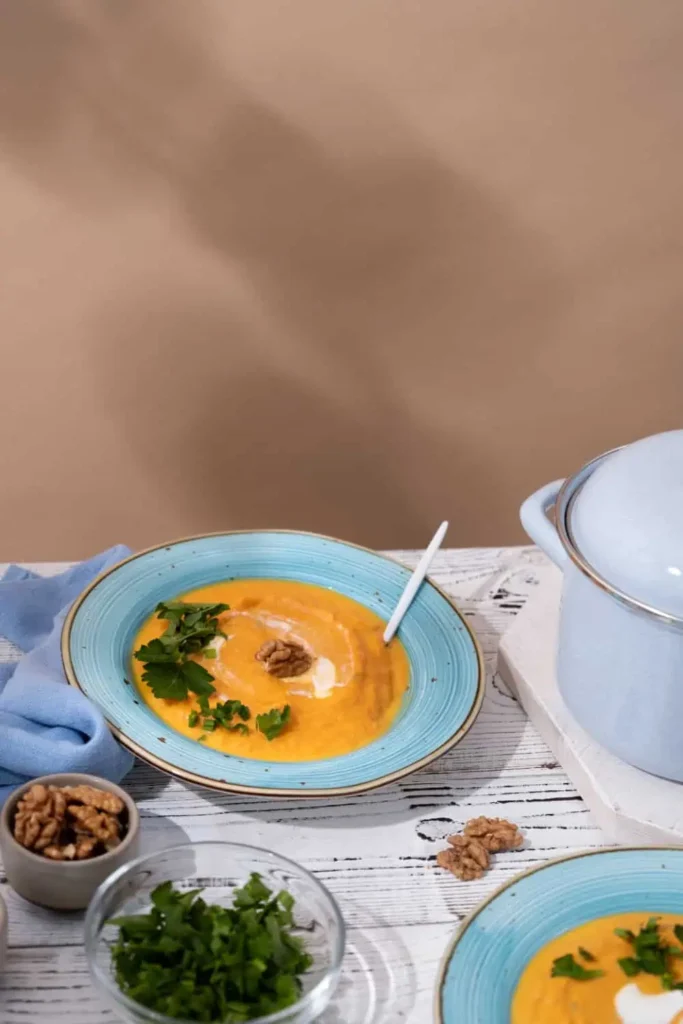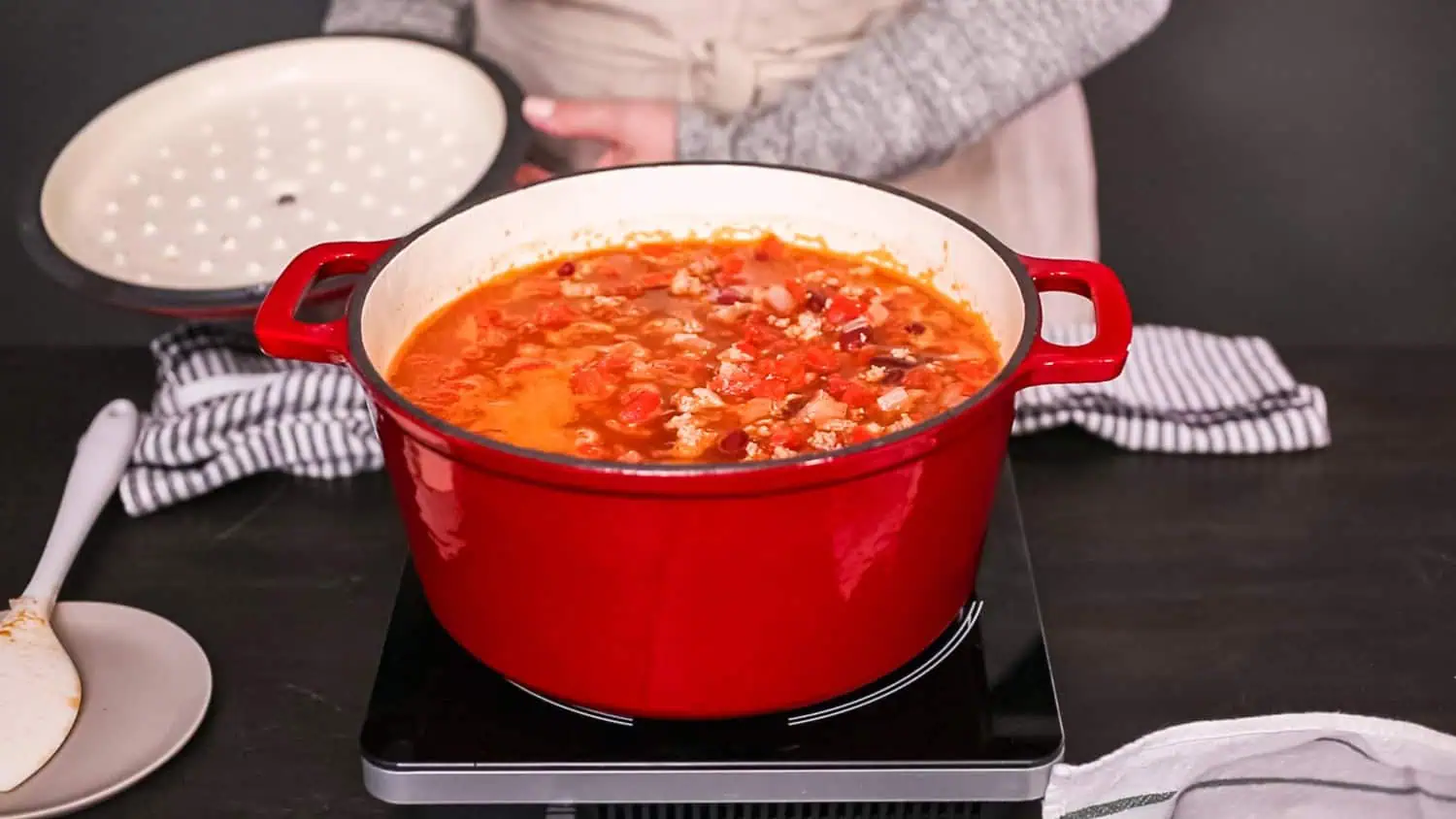If you’ve ever asked yourself, “Are crockpots good for soup?” the answer is a resounding yes! Crockpots, also known as slow cookers, are one of the most versatile and convenient tools for making soups of all kinds. Whether you’re preparing a hearty stew, a creamy chowder, or a light broth-based soup, a crockpot can simplify the process and deliver consistently delicious results. In this comprehensive guide, we’ll explore everything you need to know about using a crockpot for soup, from its benefits and best practices to troubleshooting common issues and answering frequently asked questions.
Why Are Crockpots Perfect for Soup?
Crockpots are designed to cook food slowly and evenly over a long period, making them ideal for soups. The low, steady heat allows flavors to develop and ingredients to become tender without the need for constant monitoring. Here are some of the key reasons why crockpots are good for soup:
1. Hands-Off Cooking
One of the biggest advantages of using a crockpot is the convenience it offers. Once you’ve added your ingredients and set the timer, you can walk away and let the crockpot do the work. This is especially helpful for busy individuals who want to enjoy homemade meals without spending hours in the kitchen.
Imagine starting your soup in the morning before work and coming home to a warm, flavorful meal that’s ready to serve. This hands-off approach is perfect for people with busy schedules, parents juggling multiple responsibilities, or anyone who simply wants to save time in the kitchen.
Crockpots are also great for meal prepping. You can prepare your ingredients the night before, store them in the fridge, and simply transfer them to the crockpot in the morning. This makes it easy to enjoy fresh, homemade soup even on the busiest days.
2. Enhanced Flavor Development
Slow cooking allows the flavors of your ingredients to meld together over time, resulting in rich, complex soups. The extended cooking process breaks down proteins, softens vegetables, and releases natural flavors into the broth.
For example, a beef stew cooked in a crockpot will have a depth of flavor that’s hard to achieve with quicker cooking methods. The slow simmering process allows the meat to become tender and the vegetables to absorb the savory broth, creating a dish that’s bursting with flavor.
The same principle applies to vegetarian soups. Ingredients like lentils, beans, and root vegetables develop a deep, satisfying flavor when cooked slowly. Even simple soups like tomato basil or butternut squash can taste gourmet when made in a crockpot.
3. Tender Ingredients
Tough cuts of meat, fibrous vegetables, and dried beans all benefit from the low and slow cooking process of a crockpot. By the time your soup is ready, these ingredients will be tender and flavorful.
This is especially useful for budget-conscious cooks, as you can use inexpensive cuts of meat like chuck roast or pork shoulder and still achieve a melt-in-your-mouth texture. Similarly, dried beans and lentils, which are both affordable and nutritious, cook beautifully in a crockpot without the need for pre-soaking.
For example, a hearty split pea soup with ham hocks or a beef and barley soup can be made with affordable ingredients, yet taste like a dish from a high-end restaurant. The crockpot transforms these simple ingredients into something extraordinary.
4. Energy Efficiency
Crockpots use significantly less energy than stovetops or ovens, making them an eco-friendly and cost-effective choice for cooking soups. A crockpot typically uses about the same amount of energy as a standard light bulb, which is far less than the energy required to keep an oven or stovetop running for several hours.
This energy efficiency not only saves you money on your utility bills but also makes crockpots a more sustainable option for home cooking. If you’re someone who enjoys making soup regularly, this can add up to significant savings over time.
Additionally, because crockpots don’t heat up your kitchen the way an oven does, they’re a great option for cooking soups during the summer months. You can enjoy a comforting bowl of soup without turning your kitchen into a sauna.
5. Consistent Results
With a crockpot, you don’t have to worry about burning or overcooking your soup. The steady temperature ensures that your ingredients cook evenly, delivering consistent results every time.
Whether you’re a seasoned cook or a beginner in the kitchen, a crockpot takes the guesswork out of cooking. You can trust that your soup will turn out perfectly, even if you’re not there to monitor it.
This consistency is especially important when cooking for a crowd. If you’re hosting a dinner party or preparing a meal for your family, you can rely on your crockpot to deliver a delicious soup that everyone will enjoy.

How Do Crockpots Work?
To understand why crockpots are good for soup, it’s helpful to know how they work. A crockpot is a type of slow cooker that uses low, steady heat to cook food over an extended period. The heat is distributed evenly, and the lid traps moisture, preventing evaporation. This creates the perfect environment for making soups, as the ingredients simmer gently, allowing their flavors to meld together.
The Science Behind Slow Cooking
- Low and Steady Heat: The low temperature prevents overcooking and allows ingredients to cook evenly.
- Moisture Retention: The sealed lid keeps moisture inside, ensuring your soup doesn’t dry out.
- Flavor Development: Slow cooking breaks down the fibers in vegetables and proteins, releasing their natural flavors into the broth.
- Nutrient Preservation: Unlike high-heat cooking methods, slow cooking retains more nutrients in your ingredients.
What Types of Soups Are Best Made in a Crockpot?
Crockpots are incredibly versatile and can handle a wide variety of soups, from light broths to hearty stews. Here are some of the best types of soups to make in a crockpot:
1. Hearty Stews and Chowders
These thick, rich soups benefit from the long cooking time, which allows the flavors to deepen and the ingredients to become tender:
- Beef stew
- Chicken and dumplings
- Potato chowder
- Corn chowder
- Split pea soup
- Lentil soup
2. Broth-Based Soups
Light and flavorful, these soups are perfect for a crockpot:
- Chicken noodle soup
- Vegetable soup
- Minestrone
- French onion soup
- Turkey and wild rice soup
3. Creamy Soups
While dairy should be added toward the end of the cooking process, creamy soups turn out beautifully in a crockpot:
- Cream of mushroom soup
- Broccoli cheddar soup
- Clam chowder
- Creamy tomato soup
4. International Soups
Crockpots are also great for making soups inspired by global cuisines:
- Pho (Vietnamese noodle soup)
- Tom yum (Thai hot and sour soup)
- Tortilla soup
- Italian wedding soup
- Moroccan harira
How to Make the Perfect Soup in a Crockpot
Making soup in a crockpot is simple, but there are a few tips and tricks to ensure your soup turns out perfectly every time.
1. Prepare Your Ingredients
- Cut Vegetables Evenly: Uniformly sized pieces ensure even cooking.
- Brown Meat (Optional): Browning meat before adding it to the crockpot enhances its flavor and texture.
- Layer Ingredients Properly: Place dense ingredients like root vegetables at the bottom, followed by proteins and lighter ingredients.
2. Use the Right Liquid Ratio
- Soups need enough liquid to cover the ingredients, but avoid overfilling the crockpot. Leave about 1-2 inches of space at the top to prevent overflow.
3. Add Ingredients at the Right Time
- Long-Cooking Ingredients: Add root vegetables, beans, and tough cuts of meat at the beginning.
- Quick-Cooking Ingredients: Add pasta, rice, and fresh herbs in the last 30 minutes to an hour.
- Dairy: Add milk, cream, or cheese toward the end to prevent curdling.
4. Season Wisely
- Season lightly at the beginning and adjust the seasoning at the end. Slow cooking can intensify flavors, so it’s better to add more salt and spices later.
Common Mistakes to Avoid When Making Soup in a Crockpot
While crockpots are easy to use, there are a few common mistakes to avoid:
- Overfilling the Crockpot: This can lead to uneven cooking and spillage.
- Lifting the Lid Too Often: Every time you lift the lid, heat escapes, which can extend the cooking time.
- Adding Dairy Too Early: Milk and cream can curdle if added too soon.
- Using Frozen Ingredients: Always thaw frozen ingredients before adding them to the crockpot to ensure even cooking.
- Not Adjusting Liquid Levels: Slow cooking retains moisture, so you may need less liquid than you would for stovetop cooking.
Benefits of Using a Crockpot for Soup
1. Health Benefits
- Nutrient Retention: Slow cooking preserves more nutrients compared to high-heat methods.
- Low-Fat Cooking: You can make healthy soups without the need for added fats.
- Customizable Recipes: Control the ingredients to suit your dietary needs.
2. Economic Benefits
- Energy Efficiency: Crockpots use less electricity than stovetops or ovens.
- Affordable Ingredients: Tough cuts of meat and inexpensive vegetables become tender and flavorful in a crockpot.
- Batch Cooking: Make large quantities of soup to freeze for later, saving time and money.
3. Convenience
- Set It and Forget It: Perfect for busy schedules.
- Minimal Cleanup: Most crockpots have removable inserts that are easy to clean.
- One-Pot Cooking: No need for multiple pots and pans.

FAQs About Crockpot Soup Making
Q: How long should I cook soup in a crockpot?
A: Most soups need 4-6 hours on high or 8-10 hours on low. However, the cooking time depends on the ingredients and the size of your crockpot.
Q: Can I put raw meat in a crockpot for soup?
A: Yes, you can add raw meat directly to the crockpot. However, browning the meat first adds flavor and improves the texture.
Q: Should soup be covered with liquid in a crockpot?
A: Yes, all ingredients should be submerged in liquid, but leave some space at the top to prevent overflow.
Q: Can I leave soup in a crockpot overnight?
A: Yes, as long as you use the low setting and follow food safety guidelines. Modern crockpots are designed for extended cooking times.
Q: How do I store leftover crockpot soup?
A: Cool the soup quickly and store it in airtight containers in the refrigerator for up to 4 days or freeze for up to 3 months.
Conclusion: Are Crockpots Good for Soup?
Absolutely! Crockpots are one of the best tools for making soup, offering convenience, consistent results, and enhanced flavor. Whether you’re making a hearty stew, a light broth, or a creamy chowder, a crockpot simplifies the process and ensures delicious results every time. By following the tips and techniques outlined in this guide, you can make the most of your crockpot and enjoy homemade soups that are both nutritious and satisfying.
So, the next time you’re wondering, “Are crockpots good for soup?” remember that they’re not just good—they’re fantastic! With a little preparation and the right ingredients, your crockpot can become your go-to tool for creating comforting, flavorful soups that your whole family will love.

